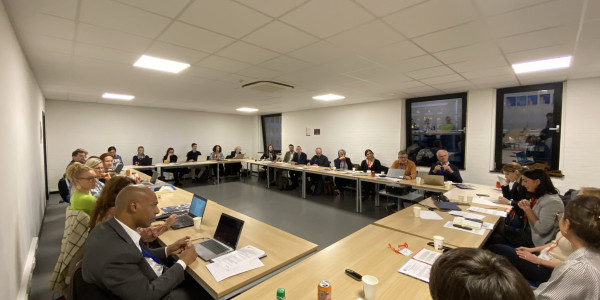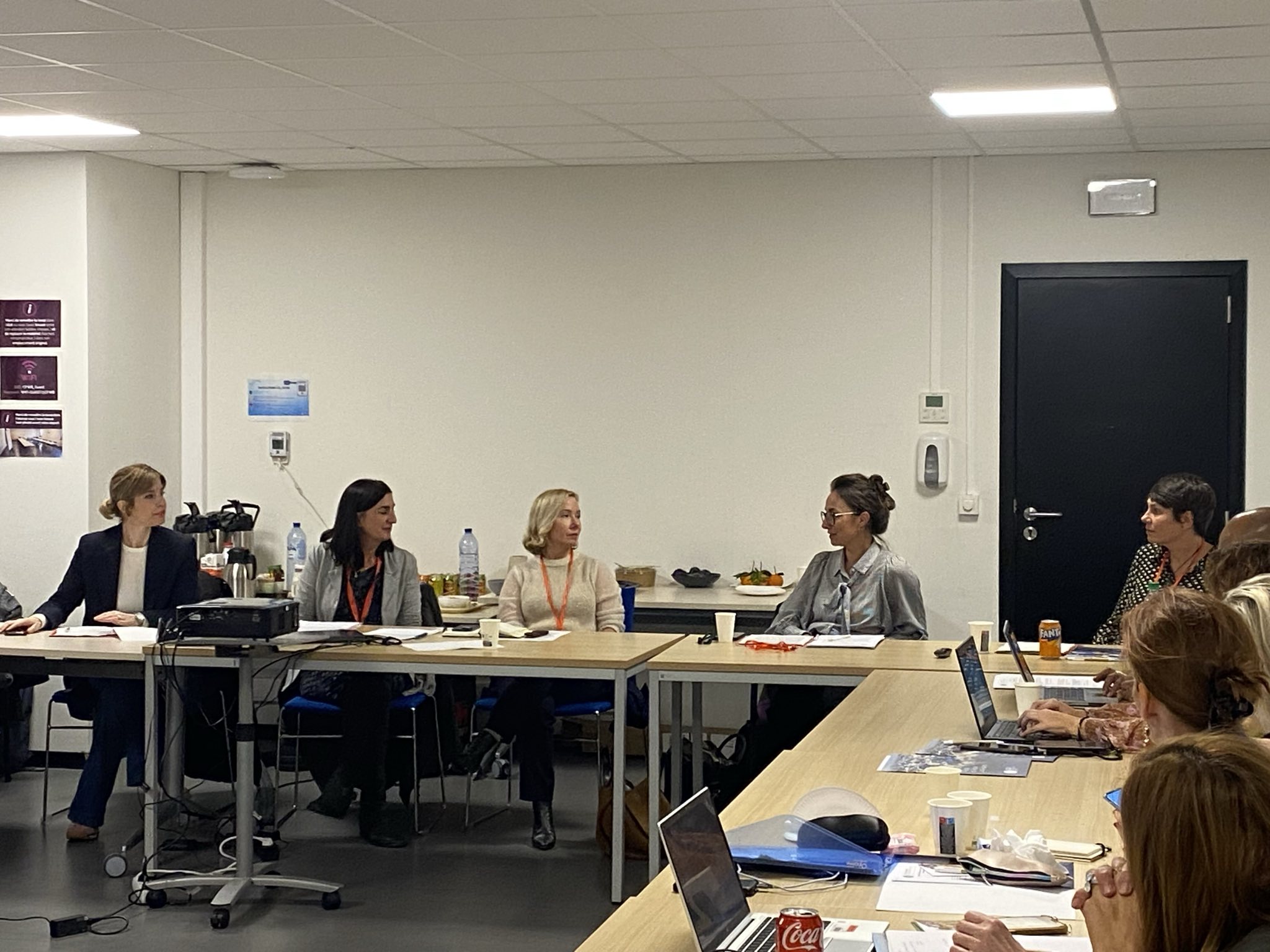

Le 6 novembre dernier j'intervenais à l'invitation du Forum Européen sur la Justice Restauratrice lors de la réunion annuelle de ses membres à Bruxelles. Le sujet de mon intervention, que vous retrouverez ci-dessous (en anglais), portait sur le rôle du Parlement européen pour promouvoir la justice restauratrice et son importance pour les personnes victimes ou auteurs de crimes.
Many thanks for welcoming me today at the European Forum for Restorative Justice, it is an honour to be with you all. Thanks a lot for the organisation of this valuable event, having you all in the same room is a very good opportunity to foster and promote restorative justice in Europe.
Since the beginning of my mandate, as Greens/EFA MEP in charge of justice and police matters in the LIBE committee, my work has been focused at ensuring dignity for all people involved in justice processes as victims, survivors or authors but also for justice professionals and social workers.
For too long, criminal justice in Europe has been dominated by a simple question: how do we punish? That question has its place, yet it is incomplete. Restorative justice asks a fuller and more courageous question: how do we repair? How do we heal the damage done to victims, to communities and also to offenders who often come from cycles of disadvantage, neglect and trauma? How do we overcome crime together as a society?
Wen I was elected the first time in May 2019, I worked together with children rights defenders, Bernard de Vos in Belgium, to advocate for the returns of EU citizens and their children held in North East Syria. I believe children are first and foremost victims. I also believe that EU countries are responsible for their own citizens whatever their actions have been.

In parallel I also engaged with victims of terrorist attacks in Brussels. I was shocked when some told me they resented the Belgian government's inactions more than the terrorists themselves.
I was also very moved by stories and testimonies from grand-mothers that have seen their children gone to Syria and fighting like lionesses for the return of their grand-children.
I was very impressed when hearing victims of terrorist attacks advocating for the return of children and their parents from Syria, overcoming fear and trauma to ensure justice is done.
I was also very impressed by the resilience of the collective Retissons du Lien and my dear friend Isabelle Serret. Together as a group of persons affected in different ways by violence rooted in the same causes, they did an amazing work in getting to try understand each other better, in repairing each other and also restoring our community. We organized a screening in Brussels of “Au delà de nos larmes” that was a great success, showing much interest in the topic.
I would like to strongly speak in support of restorative justice, not as an abstract policy preference but as a deeply human commitment. Turning crucial values into practice, solving crucial challenges for a better future. I believe justice is not only about the past. Justice should build the future. Punishment without rehabilitation does not build anything. Restorative justice builds understanding, builds accountability and builds communities that are safer because people are reconnected rather than discarded.
Across the EU, we can see that when victims choose restorative processes, they often report feeling heard, respected and empowered. Many say it is the first time they saw author of crime acknowledge the real impact of their actions. That moment can change lives. It can close wounds that courts and judgments alone cannot reach.
For offenders, restorative justice is not softness. Facing those you harmed requires more courage than sitting silently through a trial. Taking responsibility means stepping out of denial and excuses. It means hearing pain, and sometimes anger, and responding not with defensiveness but with remorse and commitment to change. This is accountability at its most personal and transformative.
As Greens, we speak often about systems that disempower people. Think of poverty, discrimination, school exclusion, addiction and untreated mental health struggles. These issues feed the pipeline that leads to crime. Traditional punishment ignores these roots. Restorative justice shines a light on them and invites communities to respond. When we address causes, we reduce harm long term. That is what smart justice looks like. Explaining is not apologizing, it is helping out prevention.
Let me be clear. Restorative justice does not replace courts in every case and sometimes it is not recommended. It does not trivialize violence or trauma. It does not push victims into forgiveness they do not choose. It gives victims options. It gives communities tools. It expands the space for justice instead of narrowing it.
We also need to speak honestly. Prisons across Europe are overcrowded, expensive and often ineffective at rehabilitation. Communities pay twice: once for the crime and again for the cost of a system that too often produces reoffending. Restorative justice is not a miracle cure, yet it reduces recidivism in many cases and does so while strengthening social bonds instead of severing them. This is a practical step forward, grounded in results, not ideology.
Our task here is not only policy design. It is leadership. There are voices who say restorative justice sounds naive, who insist that harshness equals safety. I hear them too often among my LIBE committee members colleagues. We must meet that fear with facts and with confidence in our values. True safety comes from relationships, from trust and from communities that do not abandon people. True justice uplifts victims, holds offenders accountable and protects society by breaking cycles of harm. That is strength, not softness.
We have frameworks already at the EU level that point in the right direction and I am very proud I contributed to them. As a shadow on the transfer of criminal procedure files, I pushed for the inclusion of the restorative justice criteria in deciding whether transfer should be authorized from one Member State to another one. I am very happy to say that this is the first reference on authors of crime and restorative justice in EU law. In my work on several EU criminal law files, I always tried to push for restorative justice to be included and strengthened.
The coming months will see many texts on internal security being published, including on organised crime and drugs. I call upon you to remind EU legislators that punishment alone will only feed the cycle of violence. You will always find Greens on your side.
But legislation is not enough without proper implementation. Provisions on restorative justice in the victims rights directive are ambitious but fall short when it comes to practice. There is a lack of political will, a lack of trust in the process and a lack of investment in human and financial resources. Although I strongly believe restoration is a better investment than retribution, this needs a lot of persuasion work.
We have pilot projects in Member States that prove success. They need to be supported and extended, the future negotiations on budget may be a great opportunity. What we need now is investment, training, political backing and the courage to say to victims, to communities and to offenders: we believe in your capacity to move forward. We believe repair is possible. We do not give up on people.
Thank you for your attention. I am happy to answer any question you may have.